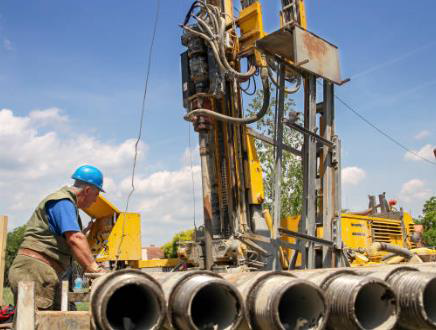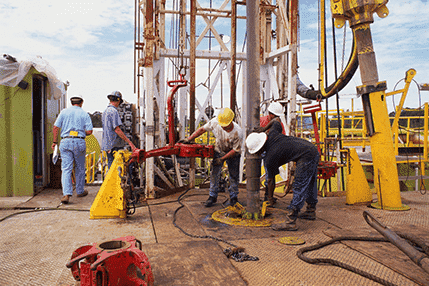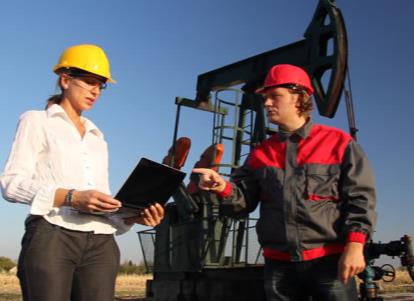COURSE OVERVIEW
DE0255 : Production Chemistry – OGPC

OVERVIEW
| COURSE TITLE | : | DE0255 : Production Chemistry – OGPC |
| COURSE DATE | : | Oct 27 - Oct 31 2024 |
| DURATION | : | 5 Days |
| INSTRUCTOR | : | Dr. Hesham Abdou |
| VENUE | : | Doha, Qatar |
| COURSE FEE | : | $ 8500 |
| Request For Course | ||
OTHER SCHEDULED DATES
Course Description
Production chemistry issues occur as a result of chemical and physical changes to the well stream fluids, as it is transported from the reservoir through the processing system. The well stream fluids may consist of a mixture of liquid hydrocarbon (oil or condensate), gaseous hydrocarbon (raw natural gas), and associated water. This mixture passes from the reservoir, through the tubular string and wellhead, and then along flowlines to the processing plant where the various phases are separated. As the fluids will experience a significant drop in pressure, a change in temperature, and considerable agitation, there will be predictable and sometimes unpredictable changes in state that impact on the efficiency of the overall operation. In general, production chemistry problems are one of four types: -
· Problems caused by fouling. This is defined as the deposition of any unwanted matter in a system and includes scales, corrosion products, wax (paraffin), asphaltenes, biofouling, and gas hydrates.
· Problems caused by the physical properties of the fluid. Foams, emulsions, and viscous flow are examples.
· Problems that affect the structural integrity of the facilities and the safety of the workforce. These are mainly corrosion-related issues.
· Problems that are environmental or economic. Oily water discharge can damage the environment and the presence of sulfur compounds such as hydrogen sulfide (H2S) has environmental and economic consequences.
The resolution of these problems can be made by the application of nonchemical techniques and through the use of properly selected chemical additives. A good facilities design and correct choice of materials can significantly reduce production chemistry issues later in field life. Unfortunately, crude oil production is characterized by variable production rates and unpredictable changes to the nature of the produced fluids. It is therefore essential that the production chemist can have a range of production chemical additives available that may be used to rectify issues that would not otherwise be fully resolved.
Modern production methods, the need to upgrade crude oils of variable quality, and environmental constraints demand chemical solutions. Oilfield production chemicals are therefore required to overcome or minimize the effects of the production chemistry problems.
This course is designed to cover the selection and use of chemicals in oil and gas production. Chemicals used for controlling corrosion, emulsions, foaming, mineral scales, paraffins (waxes), asphaltenes, gas hydrates, hydrogen sulfide scavengers and water clarifiers are covered. The course includes methods to determine the need for chemical treating, how to select the proper chemicals, and how to perform testing for chemical compatibility with the formation and other materials.
This course bridges the gap between process technology and production chemistry. It includes aspects common to operational issues such as organic precipitates (asphaltenes and waxes), water treatment and quality for re-injection, causes of non-effective treatment plants, interpretation of water analyses, scale formation, stimulation concepts, chemicals in gas production, occurrence of Halite scale in gas production and storage. The course focuses on practical onsite experience. Case histories and practical examples will be discussed.
TRAINING METHODOLOGY
This interactive training course includes the following training methodologies:
LecturesWorkshops & Work Presentations
Case Studies & Practical Exercises
Videos, Software & Simulators
In an unlikely event, the course instructor may modify the above training methodology for technical reasons.
VIRTUAL TRAINING (IF APPLICABLE)
If this course is delivered online as a Virtual Training, the following limitations will be applicable:
| Certificates | : | Only soft copy certificates will be issued |
| Training Materials | : | Only soft copy materials will be issued |
| Training Methodology | : | 80% theory, 20% practical |
| Training Program | : | 4 hours per day, from 09:30 to 13:30 |
RELATED COURSES

DE0766 : Advance Drilling Optimization for HPHT Wells
- Date: Feb 02 - Feb 06 / 3 Days
- Location: Doha, Qatar
- Course Details Register

DE0500 : Screening of Oil Reservoirs for Enhanced Oil Recovery
- Date: Jan 12 - Jan 16 / 3 Days
- Location: Dubai, UAE
- Course Details Register

DE0920 : Artificial Lift ESP Downhole Equipment
- Date: Jan 12 - Jan 16 / 3 Days
- Location: Istanbul, Turkey
- Course Details Register

DE0409 : Field Development and Carbonate Reservoir
- Date: Feb 23 - Feb 27 / 3 Days
- Location: Doha, Qatar
- Course Details Register
